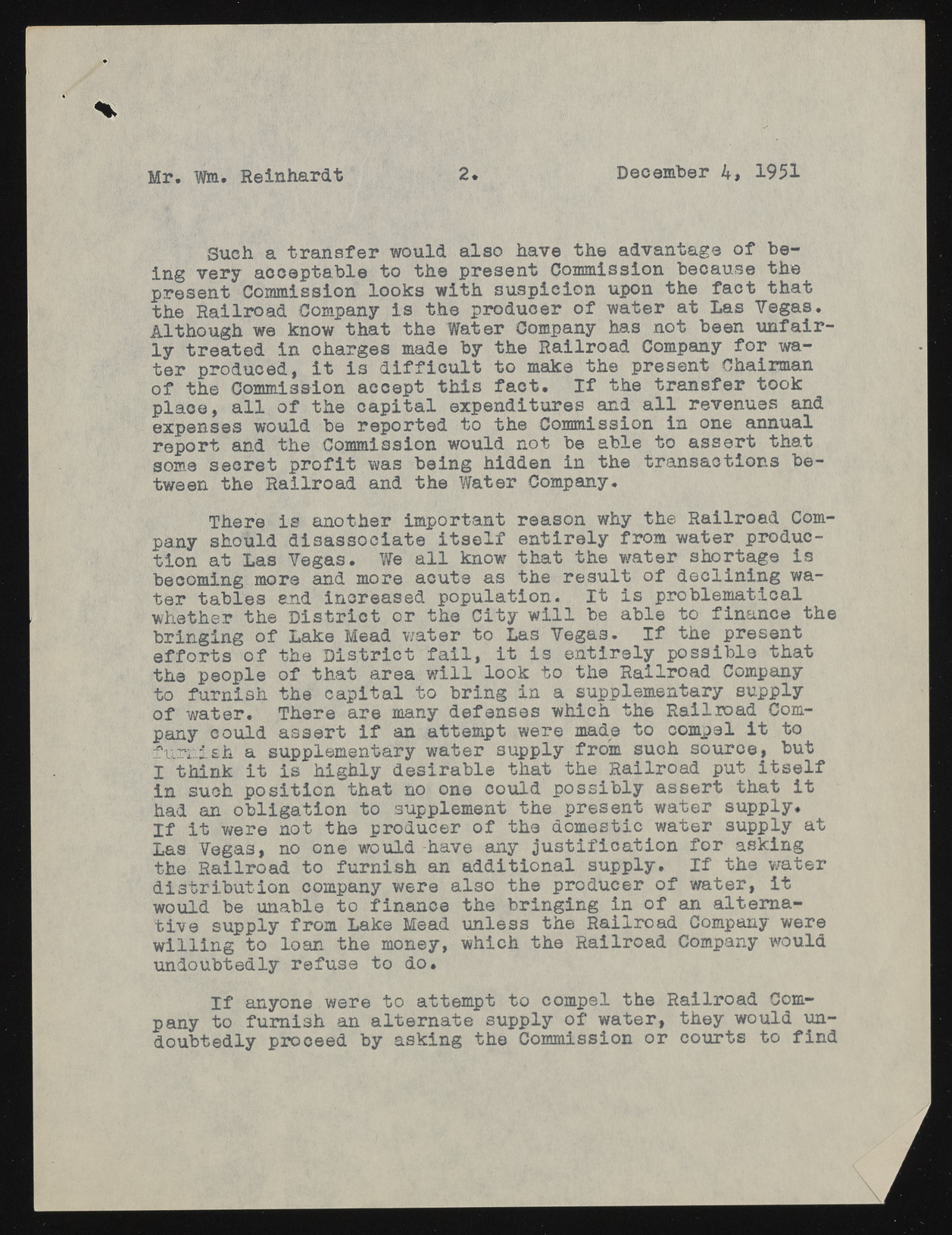Copyright & Fair-use Agreement
UNLV Special Collections provides copies of materials to facilitate private study, scholarship, or research. Material not in the public domain may be used according to fair use of copyrighted materials as defined by copyright law. Please cite us.
Please note that UNLV may not own the copyright to these materials and cannot provide permission to publish or distribute materials when UNLV is not the copyright holder. The user is solely responsible for determining the copyright status of materials and obtaining permission to use material from the copyright holder and for determining whether any permissions relating to any other rights are necessary for the intended use, and for obtaining all required permissions beyond that allowed by fair use.
Read more about our reproduction and use policy.
I agree.Information
Digital ID
Permalink
Details
Member of
More Info
Rights
Digital Provenance
Publisher
Transcription
Mr. 'Witt. Reinhardt 2* December 4, 1951 Such a transfer would also have the advantage of being very acceptable to the present Commission because the present Commission looks with suspicion upon the fact that the Railroad Company is the producer of water at Las Vegas. Although we know that the Water Company has not been unfairly treated in charges made by the Railroad Company for water produced, it is difficult to make the present Chairman of the Commission accept this fact. If the transfer took place, all of the capital expenditures and all revenues and expenses would be reported to the Commission in one annual report and the Commission would not be able to assert that some secret profit was being hidden in the transactions between the Railroad and the Water Company. There is another important reason why the Railroad Company should disassociate itself entirely from water production at Las Vegas. We all know that the water shortage is becoming more and more acute as the result of declining water tables and increased population. It is problematical whether the District or the City will be able to finance the bringing of Lake Mead water to Las Vegas. If the present efforts of the District fail, it is entirely possible that the people of that area will look to the Railroad Company to furnish the capital to bring in a supplementary supply of water. There are many defenses which the Railroad Company eould assert if an attempt were made to compel it to furnish a supplementary water supply from such source, but I think it is highly desirable that the Railroad put itself in such position that no one could possibly assert that it had an obligation to supplement the present water supply. If it were not the producer of the domestic water supply at Las Vegas, no one would -have any justification for asking the Railroad to furnish an additional supply. If the water distribution company were also the producer of water, it would be unable to finance the bringing in of an alternative supply from Lake Mead unless the Railroad Company were willing to loan the money, which the Railroad Company would undoubtedly refuse to do. If anyone were to attempt to compel the Railroad Company to furnish an alternate supply of water, they would undoubtedly proceed by asking the Commission or courts to find

